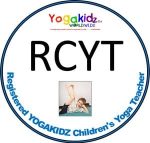Meditation is beneficial for children because developmentally it will prepare them for a lifetime of good mental health as they move towards the complexities of the adult world. Furthermore, it has been found that emotional resilience is a greater marker of success in adulthood than passing any exam or test at school. It can also mitigate against a child living in a challenging environment. When stressed a child’s prefrontal cortex, which houses their executive functioning (planning, organizing, self-regulation, and emotional inhibition), is hijacked by the limbic system which triggers the fight, flight, freeze, and flop stress response, and that also releases the stress hormones, cortisol and adrenaline, this can have an adverse effect on learning, emotions, and development. Survival then becomes the brain’s main priority and not learning and many children, who internalise a stressful environment, whether through poverty, emotional neglect, or through the rigorous demands of our education system overly obsessed with testing and exams, can become depressed, anxious, and display poor emotional behaviour.
This is where meditation and mindfulness can come in – they both help with emotional self-regulation and mental well-being. Firstly they help with cognitive mental skills of focus, attention, organisation and memory (executive functioning of the prefrontal cortex). This is because mindfulness and meditation fosters present-moment awareness that can take a child away from thinking about the past (such rumination is associated with depression) or worrying about the future (associated with anxiety). In particular, this allows a child to move away from judgemental thinking and being pulled into the maelstrom of the pressures of existence. When a child is in the present, s/he is not elsewhere but right in the here and now. To prove this, one study it was found that two months of mindfulness improved children’s behaviour, thinking processes, and academic performance (Flook et al., 2010 and 2015). Socially children also become better communicators and interact better with others showing an increased culture of respect (Black et al., 2013) which can have a better impact on their ability to socialise. Such soft skills are important when it comes to employability as an adult, particularly in the fourth industrial artificial intelligent revolution which will prioritise empathy and creativity above rote learning skills and computational number thinking. Emotionally, mindfulness and meditation impacts on positive well-being reducing poor self-esteem, anxiety, stress, and depression (Schonert-Reichl, 2010). It has also been found that mindfulness and meditation has a calmer effect which can also improve sleep (Wall, 2005). As noted above, being calm is not the ultimate aim of mindfulness/meditation, it is also about greater attention, which can have a better impact on learning in the classroom which is enhanced by better behaviour. This is why many schools have begun to implement it. Children, in essence, also become better self-carers and are kinder to others when they meditate, in particular as it works the empathy part of the brain in the pre-frontal cortex. Trouble is, children can easily become tired, restless, and distracted. There is also an impact on well-being caused by an inability for children to separate school from home life because of educational demands as well as the mentally damaging affects of a 24 hour social media screen obsessed western culture. Often we hear of children not being able to relax, pause and reset, as well as not getting enough sleep at night. Many children have access to the internet in their rooms, whether via a computer, tablet, or smart-phone. This constant connection impacts on their ability to have a greater understanding of their own internal world in understanding their needs, as opposed to outside expectations of a surface image culture obsessed with status, money and attractiveness. Mindfulness and meditation can really help children, who may make self-comparisons through social media, which impacts on their self-esteem. The good thing about mindfulness/meditation is that it allows children to access their higher selves in the sense that they will learn to know that is it good to just be themselves. To often social expectations, whether from social media, or their peers, takes them away from this. However, mindfulness and meditation is something that needs to be developed through regular practice. The practice itself if about a particular focus, whether on the breath, the body, an object, or even a word. The best part of mindfulness and meditation is that it is so simple, yet so vital in a fast-paced and often complicated world where information over-load can overwhelm us all. Neuroscience has only just got to understand the benefits of this ancient practice and how it can positively re-wire our plastic brain for the better.




